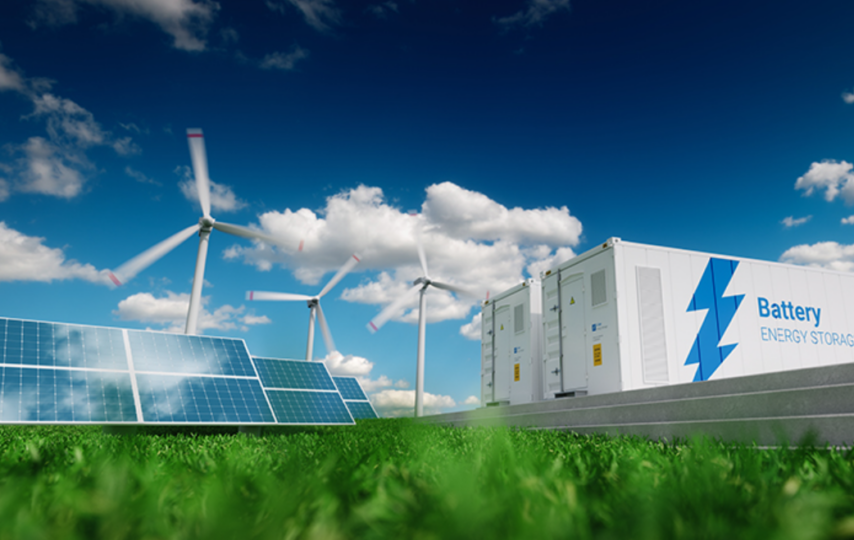As we turn towards a more sustainable future, renewable energy has become increasingly important to reduce our carbon footprint and mitigate climate change. However, one of the biggest challenges in transitioning to renewable energy is energy storage. The intermittent nature of renewable energy sources like wind and solar means that power must be stored when the sun isn’t shining or the wind isn’t blowing. According to Neville Voss, it is fortunate that there are various opportunities for renewable energy storage for businesses looking to embrace a more sustainable future. Read the rest of this article to find out more.
1. Battery Storage
One of the most common forms of renewable energy storage for businesses is battery storage. Battery storage systems use batteries to store energy produced by renewable energy sources like solar panels and wind turbines. When the energy is needed, the batteries can power the business’s operations. Battery storage is handy for companies with high energy demands during peak hours, as it allows them to draw from stored energy during these periods, reducing their reliance on the grid.
2. Pumped Hydro Storage
Pumped hydro storage is another excellent opportunity for renewable energy storage for businesses. This technology uses excess renewable energy to pump water to a high-altitude reservoir. When power is needed, the water is released, flowing downhill and through turbines to generate electricity. Pumped hydro storage is handy for businesses near large bodies of water or elevated terrain, requiring significant space to install the necessary equipment.
3. Thermal Storage
Thermal storage is a beneficial technology for businesses that need heat or cooling throughout the day. This technology works by storing excess energy produced by renewable energy sources like solar panels or wind turbines in a large thermal mass, such as a water tank or concrete slab. The stored energy can heat or cool the business’s operations as needed, reducing its reliance on traditional heating and cooling systems.
4. Compressed Air Storage
Compressed air storage is another promising technology for renewable energy storage for businesses. This technology compresses air using excess renewable energy and storing it in a tank. When power is needed, the compressed air is released, driving a turbine and producing electricity. Compact air storage is handy for businesses with intermittent energy needs, as the energy can be removed quickly and at a relatively low cost.
5. Flywheel Storage
Flywheel storage is a relatively new technology that has shown significant promise for renewable energy storage for businesses. This technology uses excess renewable energy to spin a flywheel at high speeds. When energy is needed, the spinning flywheel powers a generator and produces electricity. Flywheel storage is handy for businesses that need energy quickly and efficiently, as the energy can be released almost instantly.
6. Grid-Scale Energy Storage
Businesses looking for comprehensive renewable energy solutions may consider grid-scale energy storage. This technology involves installing large-scale energy storage systems that can store excess energy produced by renewable energy sources on the grid. Grid-scale energy storage is handy for businesses operating in regions with high renewable energy potential, allowing them to store and use this energy more efficiently and cost-effectively.
7. Demand Response
Demand response is a form of energy storage technology rapidly becoming more popular with businesses looking for renewable energy storage solutions. This technology automatically manages the business’s energy usage to reduce strain on the grid, improve efficiency, and lower costs associated with peak demand. By taking advantage of demand response technologies, businesses can reduce their energy costs and improve the sustainability of their operations.
8. Solar Thermal
Solar thermal is another form of renewable energy storage that businesses should consider. This technology uses solar panels to absorb the sun’s energy and convert it into heat. The heat can be used for various applications, including space heating, hot water, and air conditioning. Solar thermal systems are beneficial for businesses in sunny climates, as they can provide reliable and cost-effective energy storage.
Final Thoughts
Neville Voss can tell you that renewable energy storage will become increasingly important as businesses look to increase their sustainability and reduce their carbon footprint. Fortunately, numerous opportunities exist for renewable energy storage, from battery and pumped hydro storage to thermal storage, compressed air storage, flywheel storage, and grid-scale energy storage. By considering these options and investing in renewable energy storage technologies, businesses can make significant strides toward a more sustainable future while reducing energy costs and increasing energy independence.








